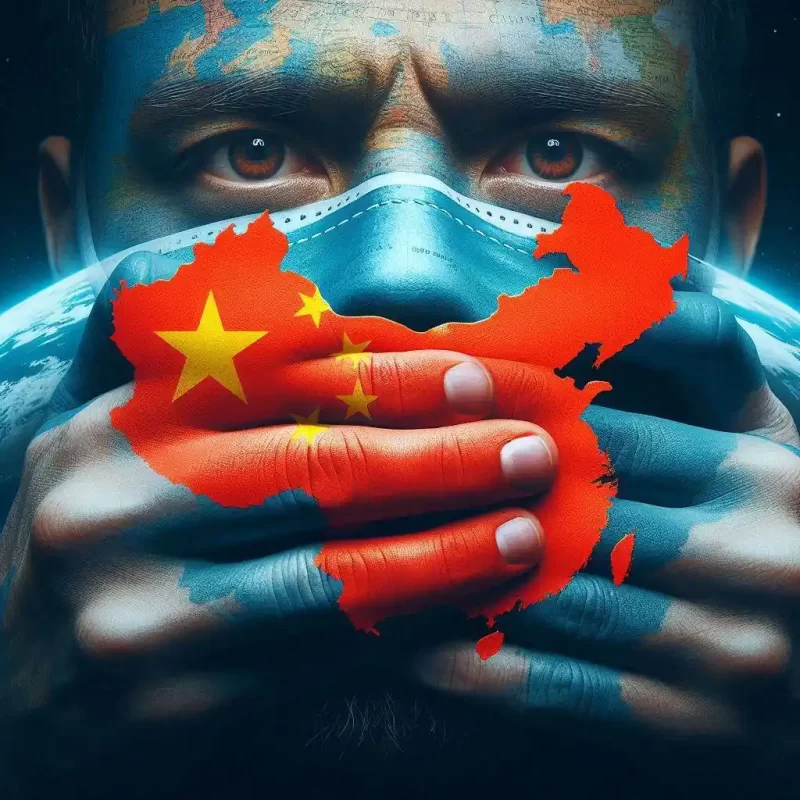In a significant boost to the entertainment industry, Disney’s “Inside Out 2” has set a new record for the biggest opening weekend for an animated movie worldwide. The film, which premiered on June 17, 2024, raked in a staggering $295 million globally, signaling a strong comeback for Disney and Pixar after a challenging period.
Disney’s “Inside Out 2” Breaks Records
“Inside Out 2” surpassed all expectations with its impressive performance at the box office. The movie earned $155 million domestically, making it the second-biggest animated launch of all time for a three-day weekend. Overseas, it added another $140 million to its tally, leading to a cumulative global total of $295 million. This achievement has been hailed as a record-breaking debut for an animated movie when considering currency exchange rates.
The movie’s success was not limited to its financial performance. It also received high acclaim from critics and audiences alike, with a Rotten Tomatoes critics score of 93% and an audience score of 96%. The film was awarded an A CinemaScore, indicating strong audience satisfaction.
Disney’s Strategy Shift and Future Prospects
This box office triumph comes at a crucial time for Disney, which has been focusing on sequels to revitalize its movie lineup. “Inside Out 2” demonstrates the potential of this strategy and hints at a promising future for the studio.
“Deadpool & Wolverine” Gets a China Release
In another significant development, Disney’s upcoming Marvel movie “Deadpool & Wolverine” has secured a July 26, 2024, release date in both the United States and China. This decision is expected to significantly boost the movie’s earnings potential, especially considering the recent challenges faced by Hollywood films in China due to deteriorating relations between the United States and China.
The Complexities of Film Distribution in China
The decision to release “Deadpool & Wolverine” in China has sparked debates and concerns. There have been calls for lawmakers in Congress to investigate the concessions Disney may have made to secure approval from the Chinese government. This scrutiny is part of a broader discussion about Hollywood studios’ practices of altering movies to appease the Chinese government in order to access the lucrative Chinese market.

Historical Context of Censorship in Hollywood
Hollywood’s history with China has been fraught with instances of censorship. Movies like “Top Gun: Maverick” and “Abominable” have faced criticism for altering content to comply with Chinese censorship rules. These incidents highlight the challenges faced by Hollywood studios in balancing artistic integrity with the demands of the Chinese market.
- Flags in “Top Gun: Maverick” Trailer: The film “Top Gun: Maverick” faced criticism when its trailer initially removed the Taiwanese and Japanese flags from Tom Cruise’s jacket. However, these flags were later restored in the final cut of the movie.
- “Abominable” and the South China Sea Map: In 2019, the animated film “Abominable” was pulled from Vietnamese theaters due to a scene showing a map that depicted China as having ownership over disputed territory in the South China Sea.
- Censorship in “The Simpsons” Episode: In 2023, an episode of “The Simpsons” referencing “forced labor” in China was removed from Disney’s streaming service in Hong Kong. This decision came amid concerns over the impact of China’s national security law on media freedom.
- U.S. Lawmakers’ Concerns: Hollywood studios altering content to appease the Chinese Communist Party has been a longstanding issue. U.S. lawmakers, including Rep. Mike Gallagher, have raised alarm about censorship, emphasizing its significance as a major problem.
Congressional Concerns and Calls for Transparency
Congressman Mike Gallagher (R-Wis.) has been vocal about his concerns regarding Hollywood’s practices in China. He has called for greater transparency from studios about their dealings with China. Gallagher’s concerns extend to the broader implications of self-censorship in Hollywood, arguing that it can promote anti-American messages and affect the stories that are told to a global audience.
“It can promote anti-American messages,” Mike Gallagher said. “What we don’t want, but what the CCP ultimately wants, is for the CCP-approved version of the movie to become the only version and that’s a bright red line that we should work to enforce.”
Gallagher said he’s concerned about changes studios are making at the early stages even before the content raises an issue with the CCP.
“You’re obviously going to censor on the front end so you can get access to the market, and we heard story after story about how the CCP dangles market access in front of Hollywood moviemakers so that they self censor what movies already been made in the first place,” Gallagher said. “There’s virtually no CCP villains in any major American movie.”
Gallagher said some Hollywood and Silicon Valley executives still hold onto the idea that more American engagement with China, with more Disney-branded theme parks and American movies, will encourage China to be less aggressive.
“To me this idea that just somehow we engage harder, that somehow the relationship is going to improve, I think that’s already been proven false,” Gallagher said.
Gallagher is referring to Bill Clinton and democrats push during the late 1990s to have China accepted into the WTO. At the time, Bill Clinton and democrats advanced the narrative that China would abandon its communist ways as they engaged more with the U.S. It has been more than 24 years since China was accepted into the WTO and given most favored nation trading status by the leaders of both parties. We can now say definitively that the 1990s narrative of China was wrong.
The Role of Actors and Studios in the Debate
Actors have also found themselves at the center of this debate. John Cena’s apology for calling Taiwan a country highlight the pressures faced by actors when navigating the complexities of the Chinese communist market.
‘Window of maximum danger’: Mike Gallagher warns about ‘discounting’ risk of China conflict
The forecast growth for China’s military spending is expected to remain robust in the coming years, with analysts projecting continued moderate increases. Here are the key points:
Forecast Military Budget Growth
- For 2024, China announced a 7.2% increase in its official defense budget, bringing it to 1.67 trillion yuan (around $234 billion)[5][6]. This continues a trend of annual increases around 7% for the past few years.
- Analysts expect China to maintain “moderate” growth in defense spending going forward, in line with the increases of around 7% annually over the last eight years[1][2].
- However, China’s actual military spending is estimated to be significantly higher than the official budget numbers, potentially over $300 billion when including off-budget items like research and development[2][4].
Drivers of Spending Growth
- Economic Conditions: While China’s economic growth has slowed, the military budget increases are outpacing GDP expansion. Analysts suggest moderate defense spending hikes will continue despite economic headwinds[1][2].
- Strategic Goals: China aims to achieve major military modernization goals by 2027 (PLA centennial) and 2035, driving sustained investment in defense capabilities[2][5].
- Geopolitical Tensions: Rising tensions over Taiwan, the South China Sea, and competition with the U.S. are factors prompting China to enhance its military capabilities through higher spending[1][5][6].
- Closing the Gap with U.S.: There is an ongoing effort to narrow the military power disparity with the United States, necessitating continuous defense budget increases according to some analysts[3].
In summary, while the precise figures are debated, the consensus intelligence is that China’s military spending will keep growing at a moderate but steady pace of around 7% annually in the near-term, driven by economic conditions allowing it, as well as Beijing’s strategic modernization objectives and heightened geopolitical tensions. Intelligence agencies like the CIA believe that actual spending levels significantly exceed the official budget numbers.
Looking Ahead
As “Inside Out 2” celebrates its box office success, it serves as a reminder of the challenges and opportunities faced by Hollywood in the global film market. The decision to release “Deadpool & Wolverine” in China underscores the complexities of film distribution in a country with strict censorship rules. As the debate continues, it remains to be seen how Hollywood will navigate these challenges while upholding artistic integrity and fostering global engagement.
Disney’s Hollywood Controversies FAQ
1. What box-office record did “Inside Out 2” achieve?
“Inside Out 2” brought in $295 million worldwide, setting a record opening for an animated movie when considering currency exchange rates.
2. How did “Inside Out 2” perform domestically?
“Inside Out 2” won the weekend at the domestic box office with a historic $155 million, surpassing expectations.
3. What was the global cumulative total for “Inside Out 2”?
The Pixar movie earned $140 million overseas, resulting in a global cumulative total of $295 million—the biggest debut of all time for an animated movie.
4. What are the Rotten Tomatoes scores for “Inside Out 2”?
The film has a critics score of 93% and an audience score of 96%. Additionally, it received an A CinemaScore.
5. What is the significance of Disney’s latest Marvel installment, “Deadpool & Wolverine”?
The film secured a July 26, 2024, release date in both the United States and China, potentially boosting earnings.
6. Why were previous blockbusters denied entry into China?
Relations between China and the U.S. deteriorated, impacting Hollywood studios. Some American titles historically earned more in China than domestically.
7. What calls for investigation have arisen?
Lawmakers in Congress want to examine what Disney provided to China to clear the movie under the communist regime.
8. How have Hollywood studios altered movies for China?
Studios have faced criticism for making changes to gain access to China’s box office market.
9. What controversies surround specific films?
“Top Gun: Maverick” removed Taiwanese and Japanese flags from a trailer, later restoring them. “Abominable” was pulled from Vietnamese theaters due to a map showing China’s ownership over disputed territory. An episode of “The Simpsons” addressing “forced labor” in China was cut from Disney’s Hong Kong streaming service.
10. How does censorship affect storytelling?
Censoring movies in China impacts the narratives told globally due to the nation’s influence.
11. What concerns does Rep. Mike Gallagher raise?
He emphasizes the problem of censorship and advocates for transparency regarding experiences with Beijing.
12. How have actors faced backlash?
John Cena apologized for calling Taiwan a country. The star of Disney’s “Mulan” remake expressed support for Hong Kong police during pro-democracy protests.
Citations:
[1] https://www.scmp.com/news/china/military/article/3253888/chinas-military-has-been-warned-stormy-seas-ahead-what-will-budget-reveal
[2] https://dsm.forecastinternational.com/2024/03/08/china-set-to-increase-military-budget-by-7-2-percent/
[3] https://www.aei.org/op-eds/chinas-defense-budget-has-only-one-trajectory-up/
[4] https://tnsr.org/2024/06/estimating-chinas-defense-spending-how-to-get-it-wrong-and-right/
[5] https://www.defensenews.com/global/asia-pacific/2024/03/06/china-unveils-new-defense-budget-with-a-72-increase/
[6] https://www.cnbc.com/2024/03/05/china-defense-budget-2024.html
💥 GET OUR LATEST CONTENT IN YOUR RSS FEED READER
We are entirely supported by readers like you. Thank you.🧡
This content is provided for informational purposes only and does not constitute financial, investment, tax or legal advice or a recommendation to buy any security or other financial asset. The content is general in nature and does not reflect any individual’s unique personal circumstances. The above content might not be suitable for your particular circumstances. Before making any financial decisions, you should strongly consider seeking advice from your own financial or investment advisor.










